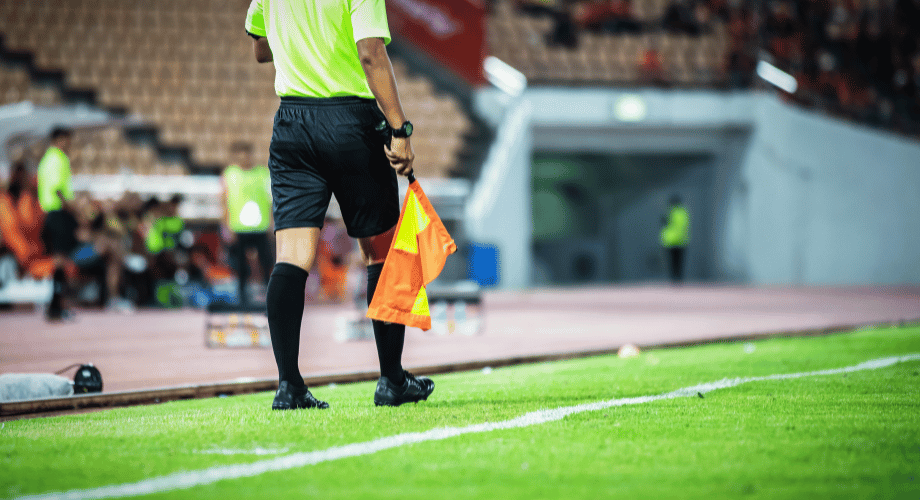A referee in soccer makes sure the game is fair, follows the rules, and stays safe for everyone on the field. In this article, we’ll break down exactly what does the referee do in soccer , from starting the match and making quick decisions to stopping fouls, managing players, and even how much they get paid. Whether you’re new to the sport or just curious, this simple guide will help you understand the crucial role referees play in every soccer game.

The Important Role in What The Referee Do in Soccer
Referees are the backbone of any soccer match. Their decisions can significantly impact the outcome of a game, making their role both crucial and demanding. Here are some key aspects of their importance:
- Fair Play: Referees are responsible for enforcing the rules of the game, ensuring that all players adhere to fair play principles. This includes monitoring fouls, yellow and red cards, and other infractions.
- Safety: The safety of players is paramount. Referees must be vigilant in preventing injuries by stopping play when necessary and issuing warnings or penalties for dangerous behaviour.
- Game Flow: By making timely decisions, referees help maintain the flow of the game. This includes managing stoppages in play, such as injuries or disputes between players.
Latest Developments in Referee Training
In recent years, there has been a significant focus on improving referee training programs globally. This includes:
- Advanced Training Methods: Modern training methods now incorporate advanced technologies like video analysis software to help referees improve their decision making skills. Programs from organisations such as FIFA and UEFA are leading the charge.
- Mental Preparation: Referees are also being trained in mental preparation techniques to handle high-pressure situations effectively. This could involve psychological resilience training and stress management strategies.
- Collaboration with Technology: The use of VAR (Video Assistant Referee) systems has become more widespread, providing referees with additional tools to make accurate decisions.
Challenges Faced by Referees
Despite their importance, referees often face numerous challenges that can affect their performance:
- Pressure and Stress: The pressure to make correct decisions under intense scrutiny can be overwhelming. Mistakes can lead to controversy and criticism, with referees often becoming scapegoats for poor team performance.
- Physical Demands: Referees must be physically fit to keep up with the pace of the game and make quick decisions. The demands of running the length of the pitch while observing player dynamics require high levels of fitness.
- Public Perception: Referees are often subject to public scrutiny, which can be emotionally taxing. Social media can amplify their experiences, creating a virtual storm that impacts their mental health.
Innovations in Referee Equipment
Advancements in technology have also led to innovations in referee equipment:
- Smart Whistles: Some referees now use smart whistles that can transmit audio signals to the VAR system, ensuring that all officials are informed of critical incidents immediately.
- Wearable Technology: Some referees wear devices that track their physical activity and provide real time feedback on their performance. This data can be crucial for improving referee efficiency and decision-making skills.
Final Thoughts
Referees ensure fair play, safety, and smooth game flow using training, judgment, and technology like VAR. Their decisions shape the match and uphold the integrity of soccer.
Next Steps
- Stay informed about updates in referee tools and rules to better understand the game.
- Explore how referees are trained through the FIFA and UEFA programs.
- Learn how VAR technology supports accurate decisions.
- Recognize the pressure referees face and respect their vital role during every match.





